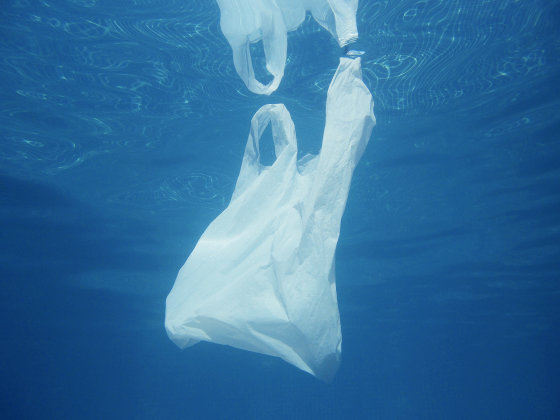Prohibiting plastic bags is not very effective in preventing marine pollution

by
In recent years, micro plastic particles and micro plastics contained in the ocean have become a major problem. How to deal with the plastic problem is a big issue in the future environmental problems, but the method of 'do not use shopping bags', which is mentioned as a general solution, is not really meaningful, Danish political scientist Explained by Bjorn Lomborg , former director of the Copenhagen Environmental Assessment Institute.
Opinion: Sorry, banning plastic bags won't save our planet-The Globe and Mail
https://www.theglobeandmail.com/opinion/article-sorry-banning-plastic-bags-wont-save-our-planet/

The environmental impact of plastics is enormous, and Canada and the EU have adopted a bill banning the distribution of disposable plastic products by 2021 in order to create a sustainable society.
Such efforts are worthy of admiration, says Lomborg, but also mentions that plastic has greatly benefited humanity. The use of plastics keeps food fresh, reduces transport losses, and makes medical devices such as syringes and vials safer to use.
The idea of eliminating all the plastic without considering the benefits that plastic has brought about can make people's lives worse. For this reason, it is necessary to tackle the problem without losing the merits of plastic.
With the initiative of “reducing plastic”, a method of “eliminating plastic garbage bags” can be considered as an action that better suits people's lives. In fact, has taken an action that more than 20 countries to ban the plastic bag, the terrorist organization al-Qaeda for the poly-bag even as 'one that results in a human or animal of a serious threat to happiness,' it looks .
However, Lomborg said, “Polybags are less than 0.8% of the plastics floating in the ocean, and just because all countries banned plastic bags does not make a big difference.” More important than creating legislation that prohibits polybags in wealthy countries, Mr. Lomborg points to improving environmental policies in developing countries and improving poor waste management systems.

by
According to a 2015 survey , less than 5% of plastic waste flowing from the continent to the sea comes from OECD member countries . Research shows that half of these trash comes from four countries: China, Indonesia, the Philippines, and Vietnam. China banned thin plastic bags in 2008 and imposed taxes on thick plastic bags, but more than 27% of continent-derived marine plastic contamination is still attributed to China.
In addition, a study published in January 2019 showed that 40 million pounds (about 18 million kg) of plastic were cut each year due to the ban on plastic bags in California. But in California, many plastic bags were reused as trash bags, which increased trash bag consumption by 12 million pounds (5.4 million kg), doubled paper bag consumption, and increased carbon dioxide It was said that it was to produce.
In addition, in the 2018 survey conducted by the Danish Ministry of Environment and Food, not only the effects of plastic waste but also the damage to the climate change, ozone layer destruction, human toxicity, etc. We know that we need to use organic cotton shopping bags 20,000 times to reduce damage. When shopping bags are used twice a week, it is calculated that if organic cotton shopping bags are not used for 191 years, there will be no difference. In the case of a paper bag, using 43 times makes a difference, but experience should show that using a paper bag 43 times is quite difficult.

by monkeybusiness
In order to use plastic bags efficiently and reduce the impact on the environment, Mr. Lomborg says that the tax on plastic bags made in Ireland in 2002 is good. With this effort, Ireland has been able to reduce the amount of plastic bags used per capita from 328 bags to 21 bags per year.
But more importantly, Mr. Lomborg said that it will focus on measures in countries that are heavily involved in environmental pollution, such as China, Indonesia, the Philippines, and Vietnam. For waste management in these developing countries, it is important to find an efficient way to reduce plastics.
Today, 70% of the plastic floating in the sea, or 190,000 tons, comes from buoys and nets used in the fishing industry. From this, Mr. Lomborg said that it is necessary to take some action in the fishery.
Related Posts:
in Science, Posted by darkhorse_log







